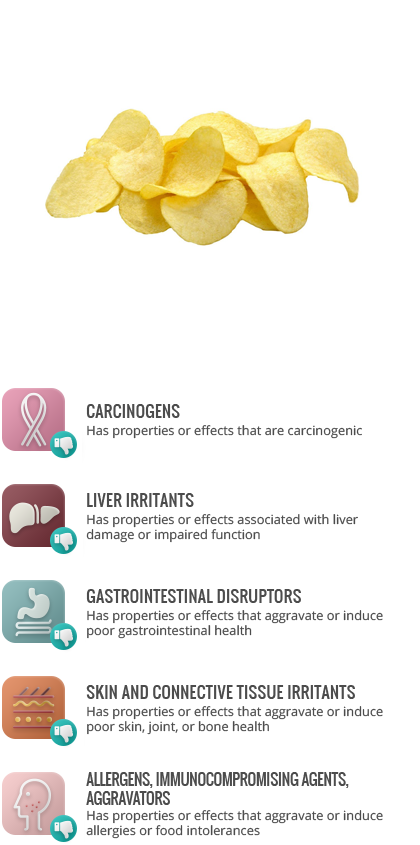BHA
Definition
BHA is a petroleum-derived preservative, used primarily for its antioxidative properties. The waxy solid is used to prevent spoilage and rancidity in fats and oils.
Health considerations
The US National Institutes of Health report it as reasonably anticipated to be a human carcinogen, on the basis of multiple animal studies. Studies in rats and mice have shown BHA to lead to increased liver weight and incidence of cancers of the gastrointestinal tract, particularly the stomach. Studies in monkeys have seen pronounced increases in liver weight and liver cell growth upon BHA exposure. BHA is also reported as causing contact allergic reactions.
Keep in mind
BHA is banned in many countries and is not permitted in infant foods.
May be found in
Potato chips, cakes, pastries, margarine
References
Journal of the National Cancer Institute
Carcinogenesis
Report on Carcinogens
Alternative Spellings and Names
Butylated hydroxyanisole, tert-butyl-4-methoxyphenol, E320


